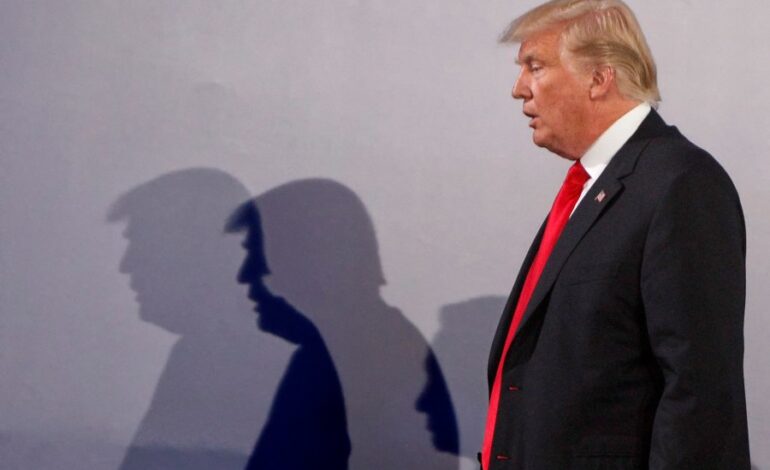Trump Tariffs Spark Debate on Modern Global Trade Dynamics

The introduction of tariffs by former President Donald Trump has reignited discussions about their potential impact on global trade. Critics, including Federal Reserve Chairman Jay Powell, have voiced concerns over the long-term implications of these policies. However, uncertainty surrounds the actual outcomes of Trump’s approach to tariffs, which significantly altered traditional trade relationships.
The tariffs, designed to protect American industries, have led to a complex and often contentious dialogue about their effectiveness. Those opposing the tariffs argue that they could lead to increased costs for consumers and potential retaliation from trading partners. Yet, no definitive consensus exists on how these measures will ultimately shape the global economic landscape.
Unpredictable Impact on Trade Relations
Despite the backlash from various quarters, including prominent financial commentators on platforms like Bloomberg, the true effects of the tariffs remain largely speculative. Economists and analysts are grappling with a multitude of variables that could influence outcomes, from shifts in consumer behavior to changes in international policy.
The historical context often invoked in these discussions is the 1930s, a decade marked by the Great Depression and the imposition of protectionist measures that many believe exacerbated economic woes. Critics of the current tariffs caution against drawing parallels between past and present, suggesting that the global economy today is more interconnected and resilient than it was nearly a century ago.
Supporters of the tariffs argue that they are necessary to restore balance to trade relationships that they perceive as unfavorable to the United States. They contend that a more assertive trade policy can lead to better terms for American workers and industries.
The Future of Global Trade
As the global economic environment continues to evolve, the implications of Trump’s tariffs will become clearer over time. Policymakers and business leaders alike are closely monitoring the situation, aware that the decisions made today could have lasting repercussions.
While some analysts predict a significant shift in trade dynamics, others remain cautious, emphasizing the unpredictability of market reactions. The ongoing debate reflects broader tensions in international trade, as nations navigate the complexities of economic interdependence.
In conclusion, the discourse surrounding Trump’s tariff policies underscores the intricate and often contentious nature of global trade. As stakeholders continue to assess the situation, it is evident that the outcomes will not only affect the United States but will also resonate across the global economy.






